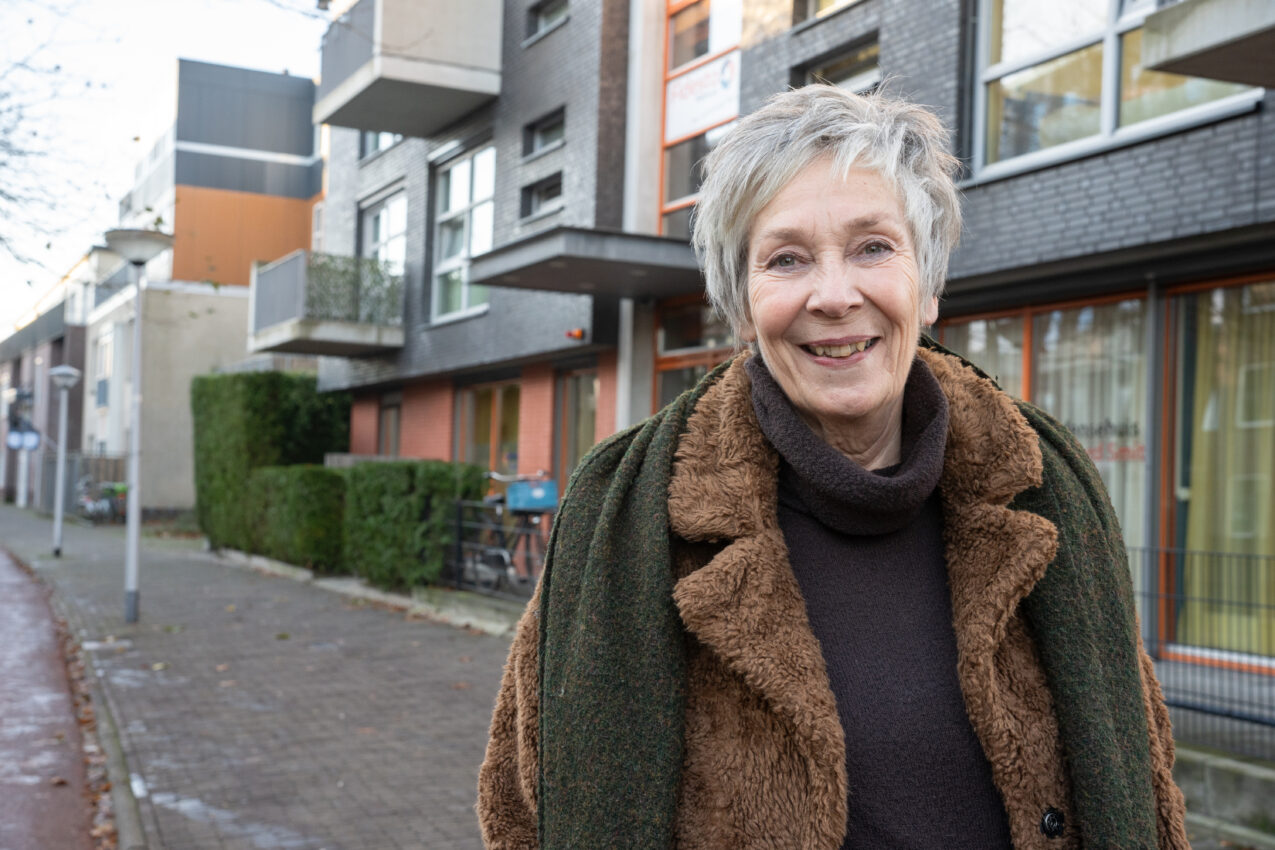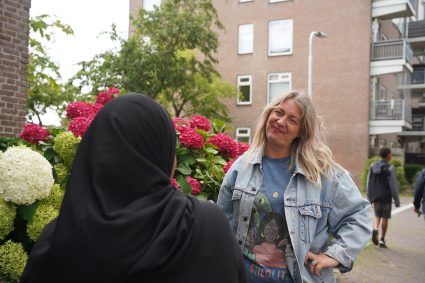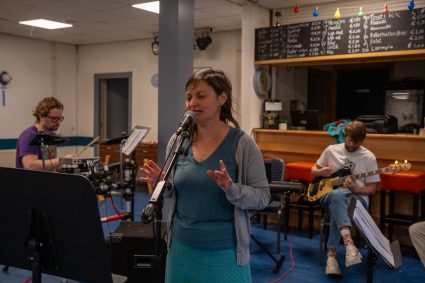"Because I am a carer myself, I also know the concerns of a carer"
Sieta is informal care support worker at Amaryllis. Her tasks as a informal care support worker are diverse. For example, she helps informal carers find appropriate support. She offers a listening ear and helps organise various activities for informal carers. In addition, she herself has been a carer for her mother for over 12 years. "My work at Amaryllis and caring for my mother is a special combination. Being a carer myself, I also know the carer's worries. I know how intense it can be to care for someone very close to you. Someone you have also known in a different way."
Ever so slightly backwards
Sieta's parents were healthy, but slowly deteriorated ever so slightly. So they came to live in a sheltered accommodation in Leeuwarden. At first, my sister and I both visited my parents about once a week. Then my father's health soon declined and my mother could no longer cope with caring for him. At that point, my father went to live in a care home. He lived there for about four years before passing away."
Intensive informal care
"At that time, my mother became a widow. My sister and I then made sure she had enough distractions and that she could pick up her life again. We made sure she at least had an activity every day at the nursing home near her home and that she could eat there too. That all went very well. Then the corona period began. Virtually no more visitors were allowed in the care home. All activity dinners were cancelled. As a result, my mother suddenly had nothing at all. At that point, caring for my mother became very intensive. My sister and I together made sure she still had some regularity. We visited her every day and had dinner with her. Not long after that, my mother suffered a severe stroke that left her with brain damage. She panicked very often. She was sad because she could no longer do many things independently. At that point, my sister and I decided it was better for her to stop living at home. My mother was placed in a small-scale living institution, and she still lives there."
You don't have to do it alone
Before Sieta's mother moved into a home, care was intensive. During that period, Sieta found a lot of support from her sister: "It made a huge difference that my sister and I could do it together. We could talk well with each other and it meant I didn't have to make all the decisions myself." In her work as informal care support worker, Sieta also encounters informal caregivers with whom things are not going so well: "Many informal caregivers I speak to initially feel they have to do everything themselves. They want to continue caring as long as possible, but don't think enough of themselves. I then tell them that they can sustain care better if they also learn to accept help from others: 'You don't have to do it alone'."
"You will always have a concern. Maybe not with everyday things anymore, but still in your mind."
Opinions are sometimes divided on when you are or are not a carer. Some people think that when your parents are admitted to a home, you actually have no care at all. Sieta disagrees: "You will always have a worry. Maybe not with everyday things anymore, but still in your mind. I really feel connected to my mother. I really feel that my sister and I can make a difference with her. Only with us does she dare to pour out her heart. We are always the first to realise how she is really doing."
Indicate your limits
Sieta has learned many important lessons in her work, and in her time as a carer: "As a carer, it is important to learn to indicate your limits. Often, people who are very ill want as few changes as possible. They actually prefer just you then. But as an informal carer, you can sometimes be strict about that. You have to stay upright, and you also have to continue to take good care of yourself. Above all, make sure your world does not become too small. There are always people who can offer help and there are professionals who can also take over the care.



